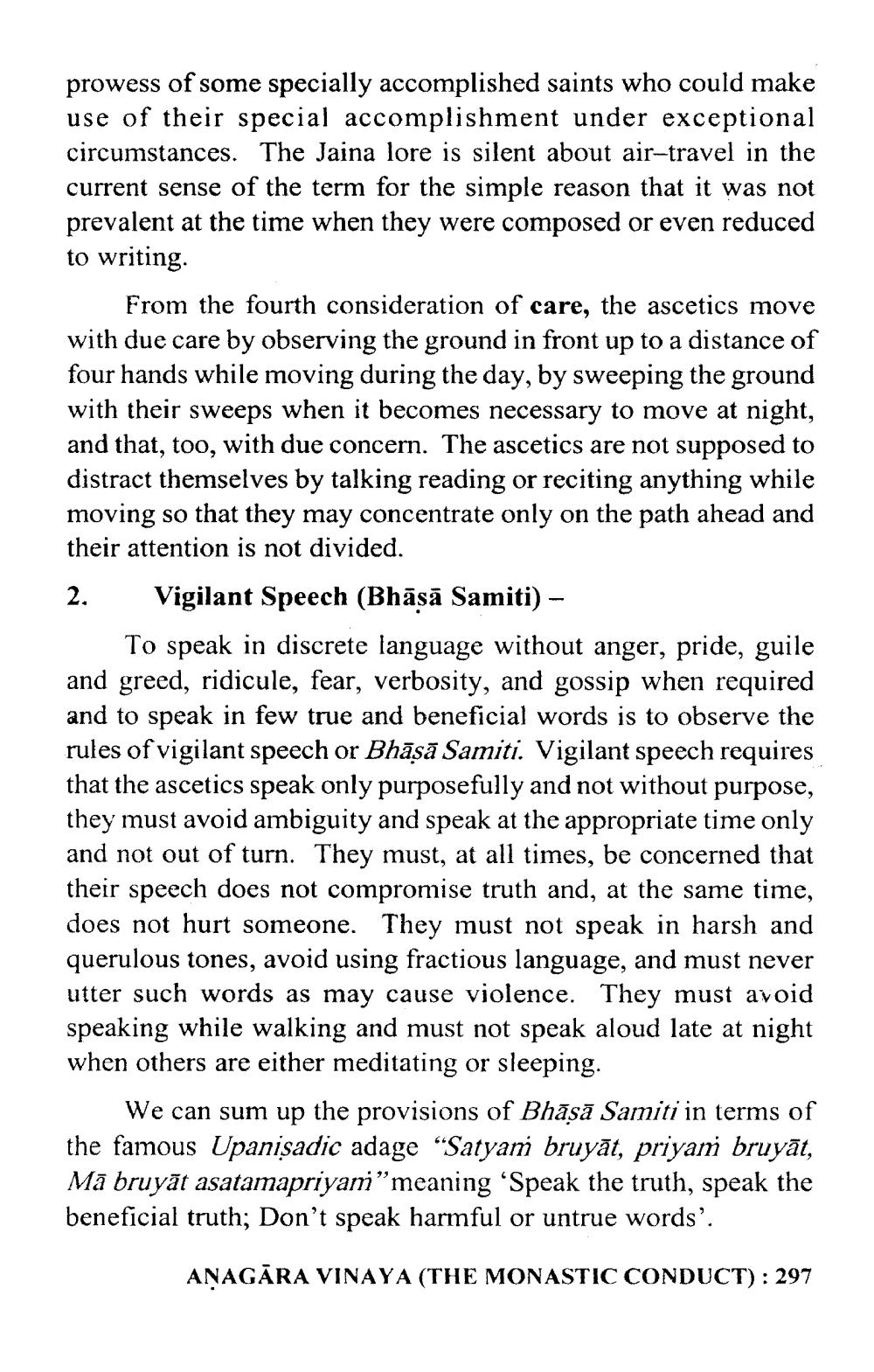________________
prowess of some specially accomplished saints who could make use of their special accomplishment under exceptional circumstances. The Jaina lore is silent about air-travel in the current sense of the term for the simple reason that it was not prevalent at the time when they were composed or even reduced to writing.
From the fourth consideration of care, the ascetics move with due care by observing the ground in front up to a distance of four hands while moving during the day, by sweeping the ground with their sweeps when it becomes necessary to move at night, and that, too, with due concern. The ascetics are not supposed to distract themselves by talking reading or reciting anything while moving so that they may concentrate only on the path ahead and their attention is not divided. 2. Vigilant Speech (Bhāsā Samiti) -
To speak in discrete language without anger, pride, guile and greed, ridicule, fear, verbosity, and gossip when required and to speak in few true and beneficial words is to observe the rules of vigilant speech or Bhāṣā Samiti. Vigilant speech requires that the ascetics speak only purposefully and not without purpose, they must avoid ambiguity and speak at the appropriate time only and not out of turn. They must, at all times, be concerned that their speech does not compromise truth and, at the same time, does not hurt someone. They must not speak in harsh and querulous tones, avoid using fractious language, and must never utter such words as may cause violence. They must avoid speaking while walking and must not speak aloud late at night when others are either meditating or sleeping.
We can sum up the provisions of Bhāsā Samiti in terms of the famous Upanisadic adage “Satyam bruyāt, priyam bruyāt, Mā bruyāt asatamapriyam” meaning 'Speak the truth, speak the beneficial truth; Don't speak harmful or untrue words'.
ANAGĀRA VINAYA (THE MONASTIC CONDUCT): 297




